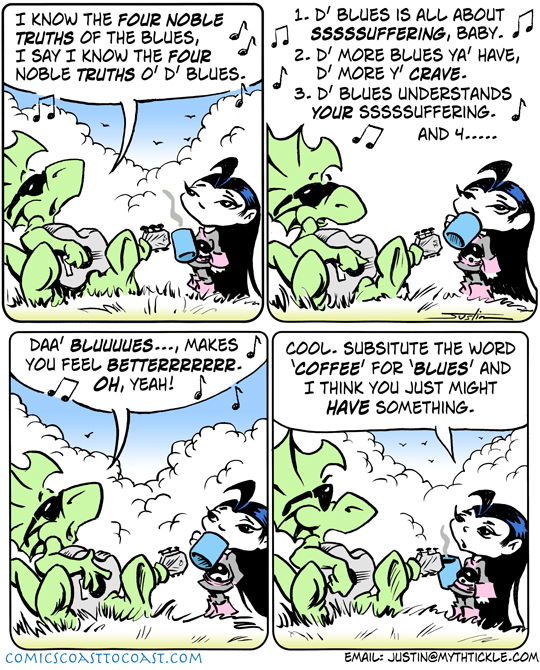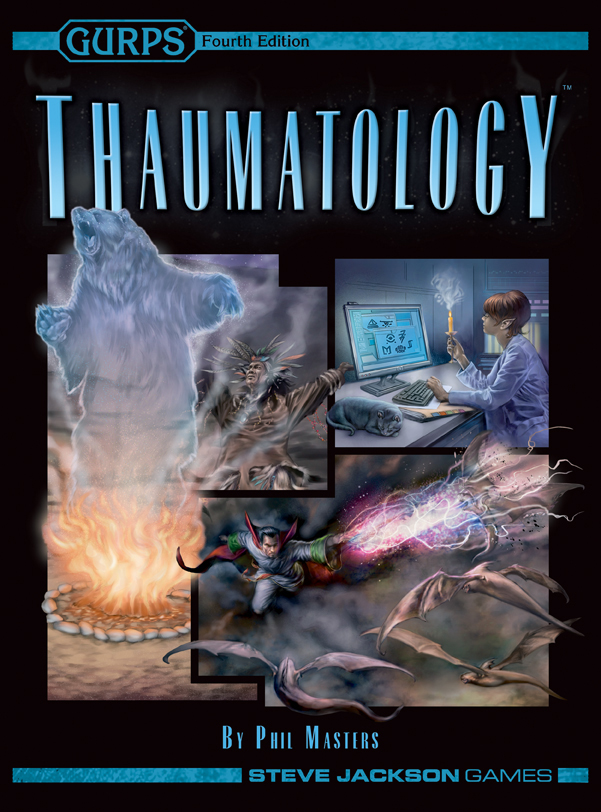I've had friends ask me what the hell my gaming buddies and I do at our monthly(ish) RPG sessions.
I even had one ask me if it was something "Satanic" like "D&D".
I'm not sure if she was joking or not. I have some friends who cling to sanity by very thin threads. I digress.
Explaining the lure of a role-playing game is a bit of a challenge. The explanation I've found has the most resonance is that it's kind of like being in a novel (or a tv show or a movie, depending on your preferred media venue).
The setting of the game is the story. People gathered to be in this "story" are broken into groups: players and the "game master" (or "GM").
The players take the roles of characters in the story while the GM is the narrator, the arbiter, the creator, "God", and the voice of the background characters.
For example: if you got a bunch of people to play a "Harry Potter" game, you could say that Harry Potter, Hermoine Granger, and Ron Weasley would be players (or, more accurately, "player characters" aka PCs). The rest of the characters in the story, including what's going on around, would be the purvue of the GM.
So what's the attraction of being a character in a story?
Well, RPGs are interactive. You don't
have to have your characters do the dumb things that you see protagonists do in a story. In a horror movie, the cliche is that a group splits up and someone always goes alone into the basement.
In a horror game that only happens when a player is coerced or feeling suicidal with his or her character.
Essentially, an RPG is a way to play out a story the way you think one of the characters
should have acted.
Character actions are governed by a series of numeric values assigned to simulate characteristics (physical strength, speed and dexterity, relative intelligence, skill at a particular task, etc.). Dice are introduced as randomizers then rolled against the numeric scores that govern the various traits. Much like real life, one isn't always successful at what one does. The dice rolls against these scores are an attempt to simulate that life uncertainty.
So, for example, you have a character trying to pry a stone off of a fallen companion. That character would roll dice in comparison with a number that simulates a characteristic for physical strength. Depending on the overall rules, you'd want to roll high or low to succeed. You'd do the same to have your character shoot a blaster, swing a sword, sing a song to impress a queen, etc.
In "original" settings (most settings are inspired, if not actively lifted from, stories in books, tv, or movies), there's less in the way of preconceptions and an expectation of more creative freedom with characters so you can make that character who is Han Solo the Jedi Knight or whatever your fantasy is.
Still sounds lame? Really?
Personally, I find the entire thing a neat storytelling exercise. I lack anything resembling self-discipline, so all my attempts at writing stories have stopped cold and dead in the water. I know myself well enough to know it's highly unlikely I'll overcome that. I'm too self-conscious of my story ideas being derivative crap (and they usually are) to try to get them printed.
In a game, the audience is limited and really doesn't give a damn if it's deriviative crap. They just want to see how they'd do with characters in the derivation.
I guess that's why I love to GM. It's a way to get the writing bug of mine out of my system without looking straight into the eyes of my neuroses.
Okay, maybe I'm just looking at different neuroses. Whatever. They're my neuroses. Some are prettier than others.
Don't look at me like that.











